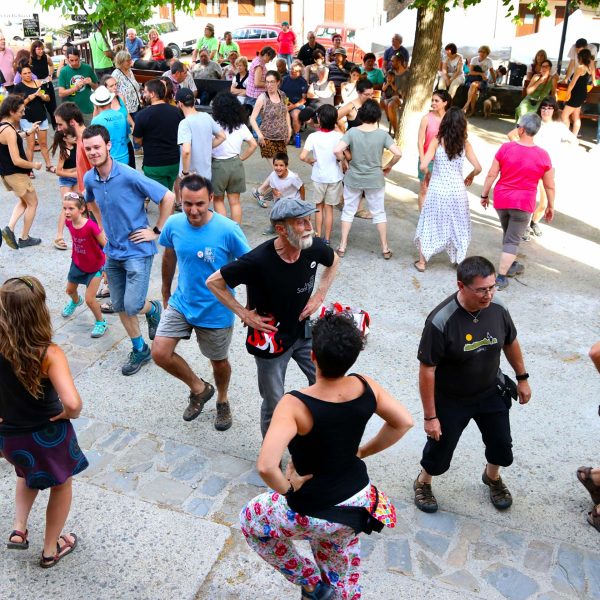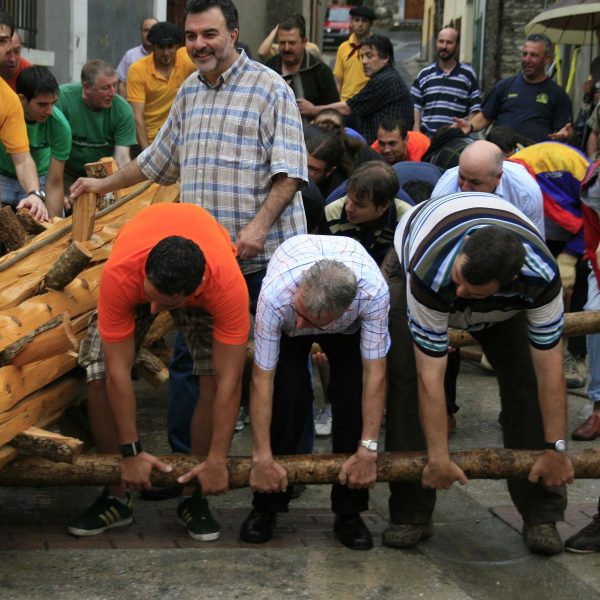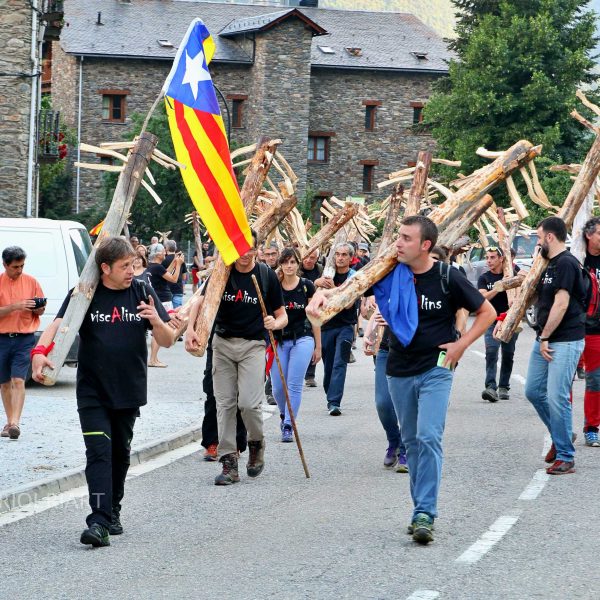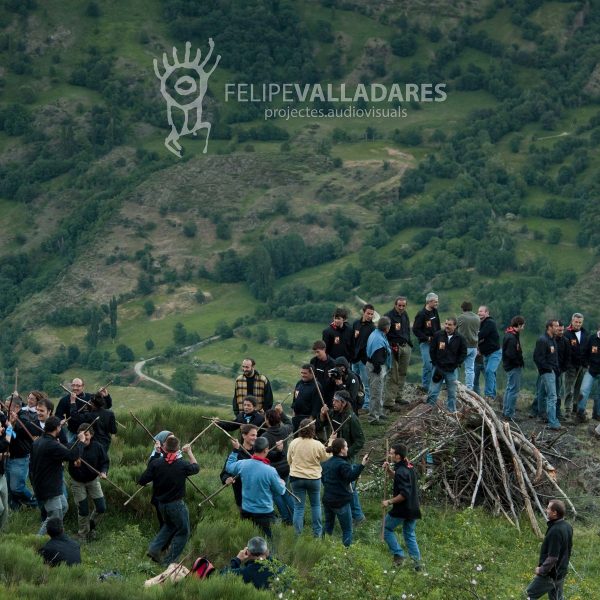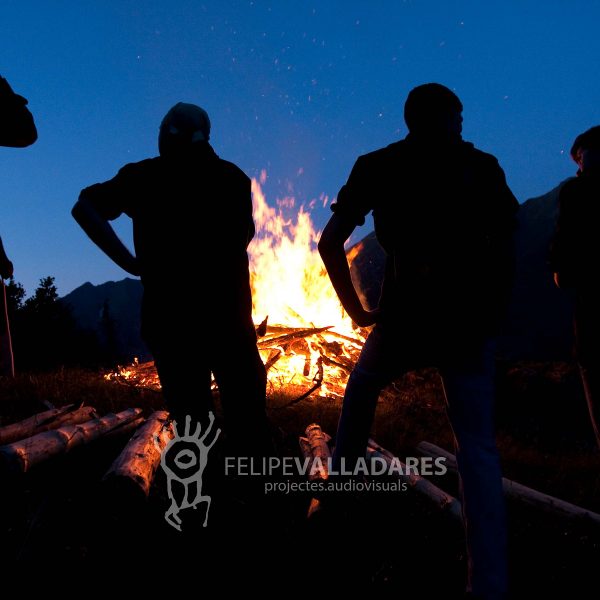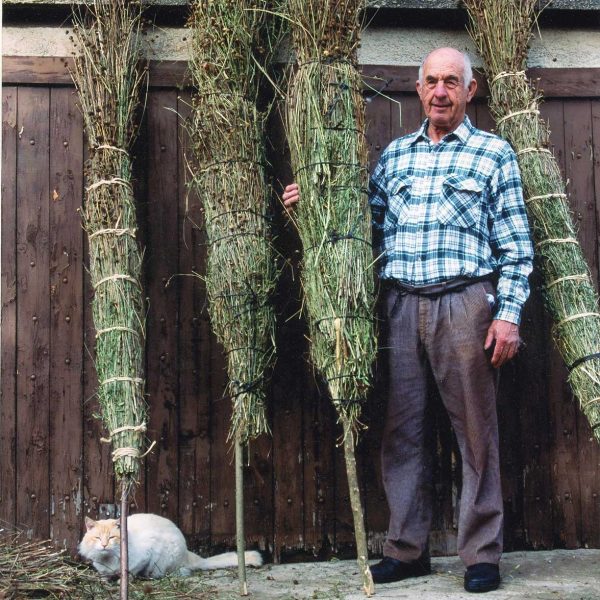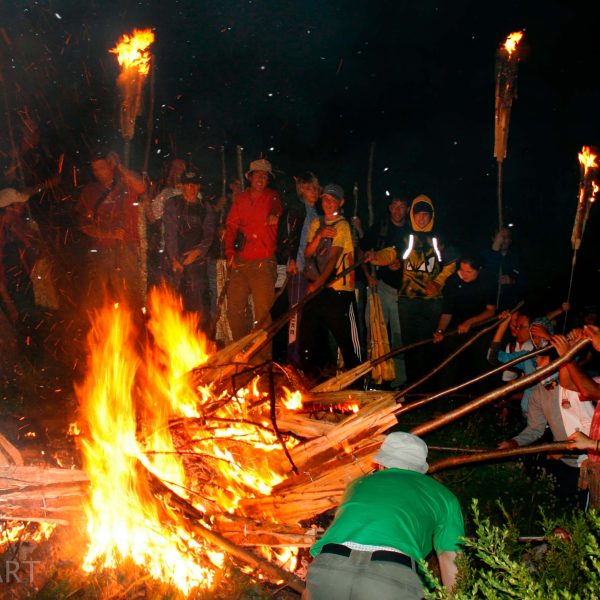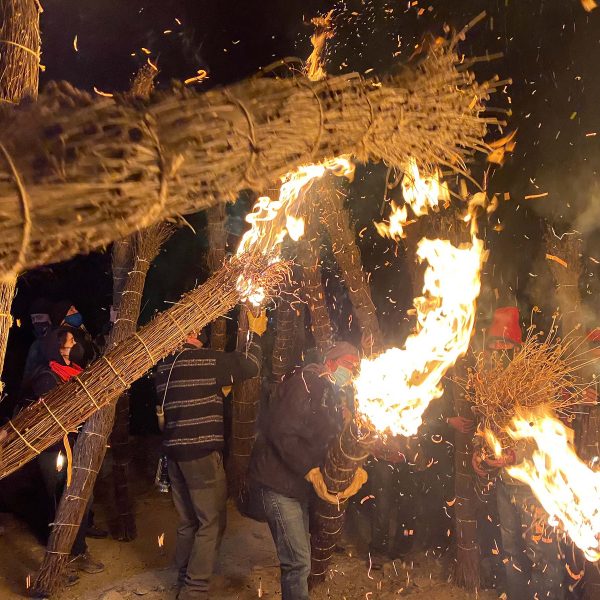The Pyrenean fire festivals have a long history and have evolved constantly over time. Although it seemed that their survival was threatened during the second half of the last century, today, the future of the festivals seems to be assured as a result of villages’ efforts to protect, consolidate, and revive the celebrations. Festivals are, above all, local celebrations and enable villagers to renew their sense of belonging to the local community.
Fire festivals and identities
Many different identities exist in the Pyrenees, the most important of which is local identity. The festivals play a key role in reaffirming local ties and a sense of belonging. Both in the past and in the present, falles and brandons have served to emphasize villagers’ local identity; for centuries, the household and the village have been key features of the landscape and essential for managing economic resources; these festivals must be seen as a way of asserting local identity, as each village recognizes its festival as its own and considers it to be different from those of neighboring villages.
Apart from local identity, there are other identities in the Pyrenees and the festival has been used to assert national identity. In the Pyrenean territory there are numerous different identities: regional, national, and state, and the festivals have been used to assert all of these: Andorran, Catalan, Aragonese, and Occitan.
Fallaire associations
Fallaires associations have become the main organizing bodies in many towns and villages. This is the case in Isil (created in 1991), La Pobla de Segur, and Andorra la Vella. In these cases, the role of the associations has been essential for the survival or revival of the festival. The associations are not only responsible for organizing the festivities, but also for making necessary changes to suit them to the challenges of contemporary society.
Since 2009, representatives of the different associations and of the municipalities have held an annual meeting to exchange views of organization, knowledge, and experience of the festivals. They also carry out technical and recreational activities. In 2019, at the meeting held in La Pobla de Segur with the collaboration of the Chair of Education and Intangible Heritage of the Pyrenees of the University of Lleida, it was agreed to create a Fire Festival Coordinating Committee, with representatives from Catalonia and Aragon, Occitania, and Andorra. The aim of the committee is to maintain and promote the festival.
Fire festivals, both local and global
In the 21st century, our society appears to be moving inexorably towards globalization, so it is more important than ever to assert local identity. Fire festivals are recognized as world heritage, but above all, they allow us to identify with small communities. This virtual museum is open to everyone around the world, but it belongs, most especially, to the people who celebrate the festivals.
 Occitan
Occitan



